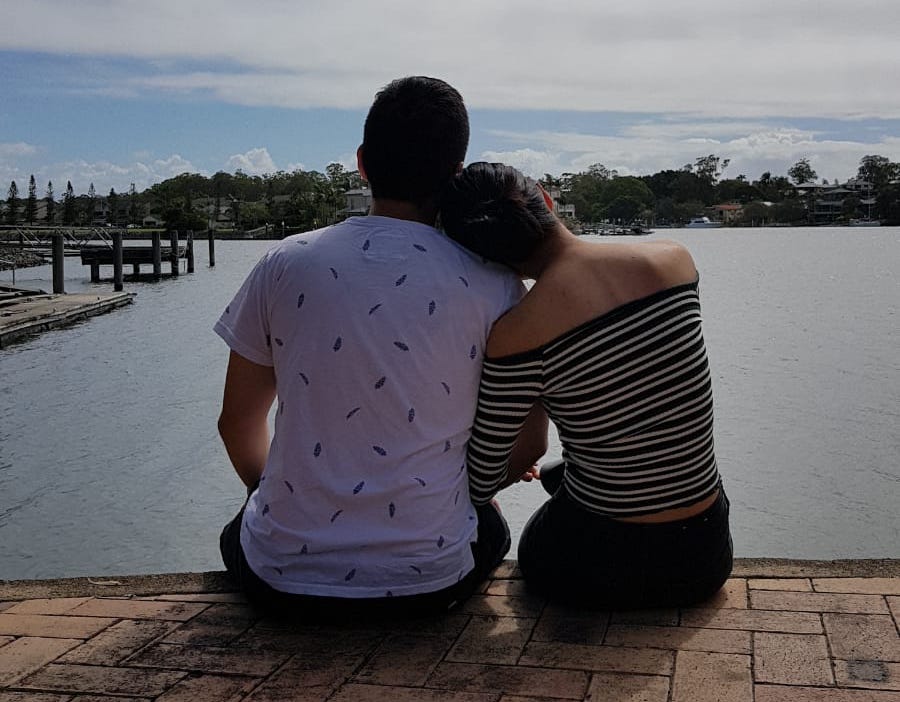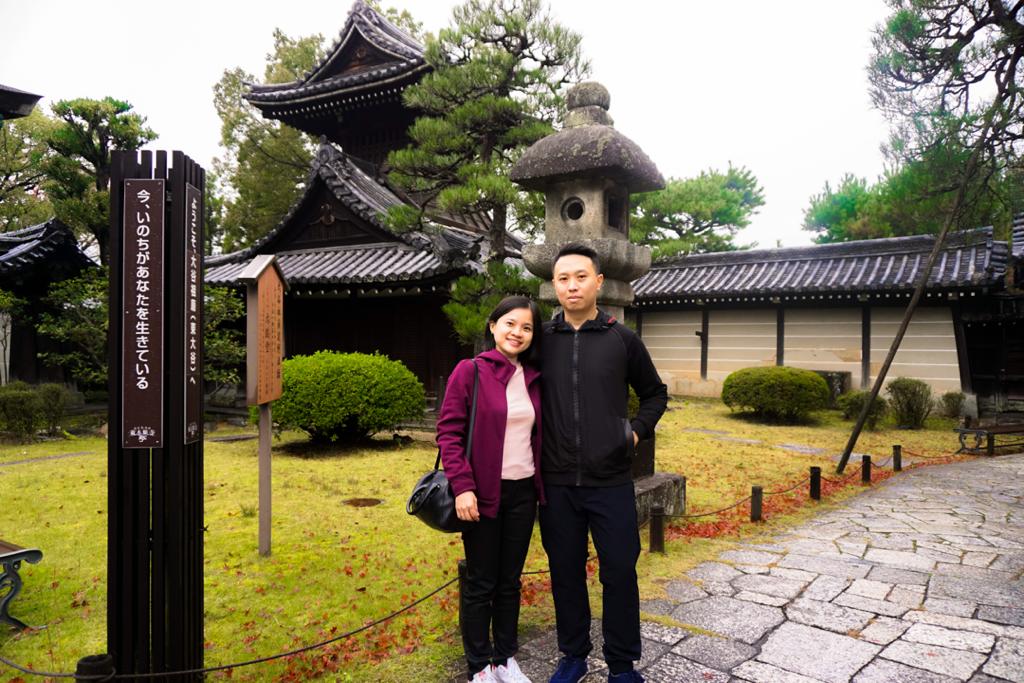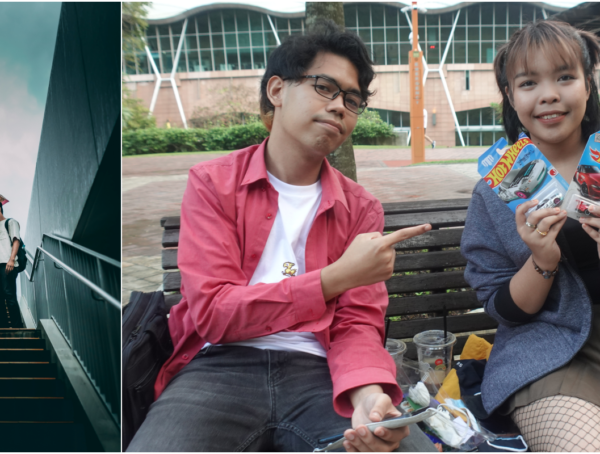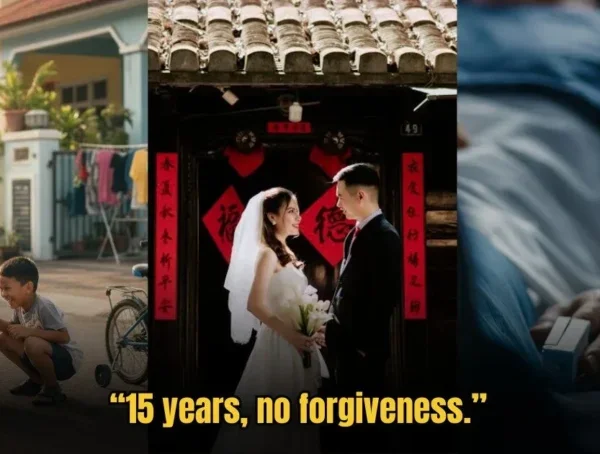It’s likely you’ve heard of the five love languages. The idea, as explained by marriage counsellor Dr. Gary Chapman, is that we all have a preferred way of receiving love:
Words of Affirmation, Acts of Service, Receiving Gifts, Quality Time, and Physical Affection.
But what if your love language doesn’t match your partner’s?
Just imagine telling your partner how much you appreciate them in Hokkien when they don’t understand a word of the dialect. Yeah, you might as well proclaim your love to a bucket of fried chicken.
So how can couples overcome this roadblock in their relationships? I spoke to four couples to find out.
Mei Ling Craved Words of Affirmation, But Adam Struggled with the Language
 A cute note left on the mirror
A cute note left on the mirror
With words of affirmation as her primary love language, Mei Ling tells her boyfriend, Adam, she loves him a lot.
“I wish he would say ‘I love you’ more too,” she sighed.
Adam, however, isn’t always comfortable saying the three words. He isn’t very eloquent either. During arguments, he would say the wrong things and fail to express his points well, which often results in Mei Ling getting angrier.
At the same time, Adam would drive her around without her having to ask and cook for her.
Mei Ling realised this was his way of saying “I love and appreciate you.” She finally understood Adam was making up for his inability to shower her with words of affirmation through acts of service, her secondary love language.
Now, when he does these things, she appreciates them more, knowing their significance.
 Mei Ling and Adam
Mei Ling and Adam
Mei Ling advised, “Don’t push him, don’t compare him to other guys, and don’t be too set on your love language.”
Jacob Was Confused When Ami Rejected His Gifts
In the beginning, Jacob would give Ami gifts, which is how he likes to show love. Thing is, Ami would be uncomfortable and try to reject the gifts, saying “I can’t accept this.”
This frustrated Jacob. He felt his efforts were unappreciated.
But over time, Jacob learned Ami’s primary love language is quality time. She would ask for them to hang out, call him when she wants to talk, and give him her undivided attention.
To her, it’s easy to give things and say things, so it means more when her partner is able to sit down and be there with her.
Now, whenever Ami’s in a bad mood, Jacob knows he should make time for her. He’d say “Let’s go for ice cream” or he’d call her to distract her and make her laugh.
For Ami, even though she still doesn’t like getting material things, she slowly began to understand that’s how Jacob expresses his love and learned to appreciate the gifts more.
“I think it’s about adjusting our behaviour to fit each other’s love languages. The effort would not go unnoticed,” Jacob shared.
Li Yen and Daniel’s Love Languages Reflect Their Different Upbringing
Sometimes, your love language is shaped by your parents’.
While Li Yen and Daniel share the primary love language of quality time, Li Yen was raised by parents who showed each other acts of service, her secondary love language.

“My parents would do things for each other without a single word passing between them. Dad would sweep or vacuum the floor, go on grocery runs, or hang the clothes to dry after Mum washes them. While Mum would cook and wash the dishes, and look after Dad’s health.”
These practices were passed onto Li Yen, who shows acts of service to her family by helping iron her dad’s work shirts and sometimes, baking pastries for all to share.
Daniel, however, wasn’t raised the same way with acts of service as his second-least important love language.
“For example, I will serve him a glass of water whenever he comes to my house, but he won’t do the same. Only his mum would do that,” Li Yen lamented.
But after taking the love languages quiz, Li Yen finally understood Daniel shows his love through quality time and doesn’t wonder “Why are you not like that?” anymore.
Similarly, Daniel started showing Li Yen more acts of service knowing how much she’d appreciate them.
“Even though he doesn’t like to drive, he started picking me up whenever I am back in KL from Singapore. It makes me happy seeing he’s making an effort.”
Louis’ Love Language Changed When She and Andy Had a Son
 Andy and Louis like to travel because it’s the best form of quality time – without the stress from work
Andy and Louis like to travel because it’s the best form of quality time – without the stress from work
Having been in a relationship with Louis for 18 years now, and married for 11 of those years, Andy points out that people evolve over time, with changes in lifestyles and needs.
His wife, Louis, likes surprises and her primary love language is receiving gifts, be it a cheesecake or a small souvenir from a work trip.
However, after becoming parents, time became increasingly limited. As a busy professional with a son in primary school, Louis started to appreciate acts of service more.
“These days, I am more grateful when Andy would help pick our son up from school, feed him, and make sure he’s doing his homework. It helps lessen my burden.”
As for Andy, his love language is quality time. For him, travelling with Louis is the best way to enjoy each other’s company because there aren’t work or daily responsibilities getting in the way.
“We are continually learning about our partners, even if you’re 18 years in. What they need changes and it’s up to you to notice these changes,” he shared.
Why Are Love Languages Important?
When it comes to showing love, impact trumps intent.
As one couple puts it, she will always remember his handwritten notes, but she won’t always remember him doing the dishes, shopping for groceries, or doing the laundry.
Learning how to ‘speak’ your partner’s primary love language lets you know which action has better impact.
Did any of these love languages make you go “Hey, that’s me!”? Let us know by sharing your love language experience here.
You might also like
More from Real Relationships
‘How My Mother-In-Law Ruined My Proposal’ Shares 30 YO M’sian Woman
This is a story about a woman whose proposal was ruined by her future mother-in-law when she announced in front …
“I Had Affairs with Refugee Men” shares 59 year old M’sian woman
This story is about a woman who didn’t go looking for betrayal, she slipped into it through loneliness, silence, and …
I don’t feel anything about his death,’ shares M’sian betrayed by best friend
This story is about a man who learns that the childhood friend who once stole his happiness is now dying, …


















